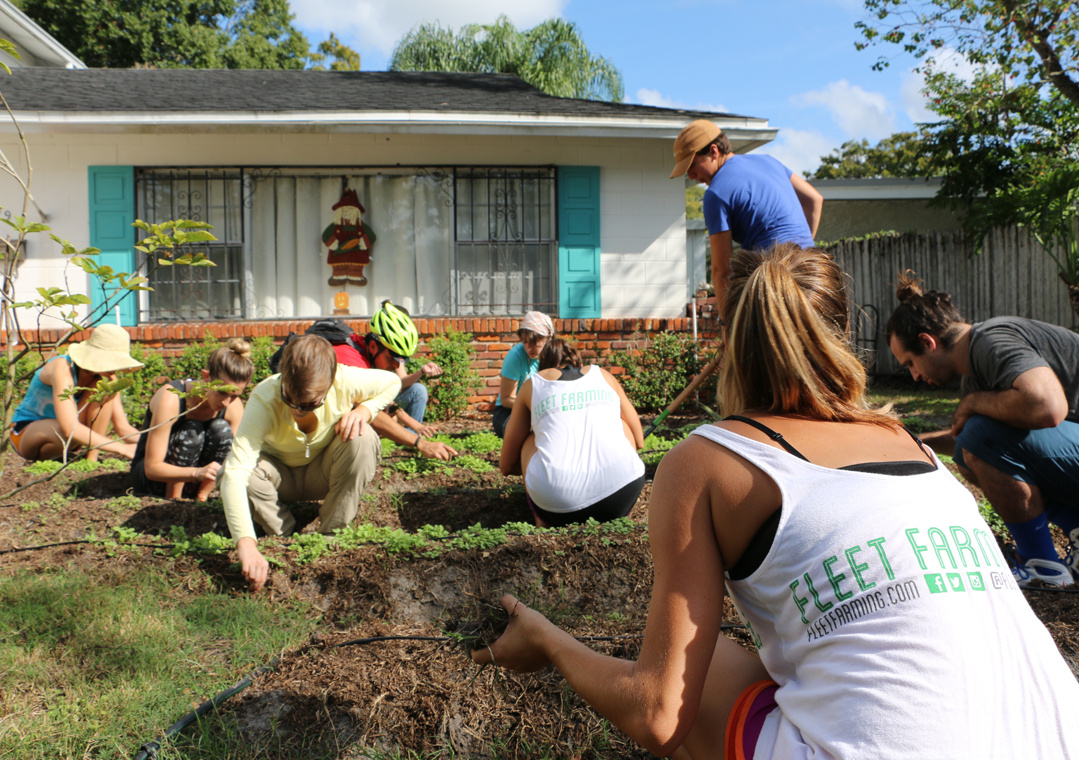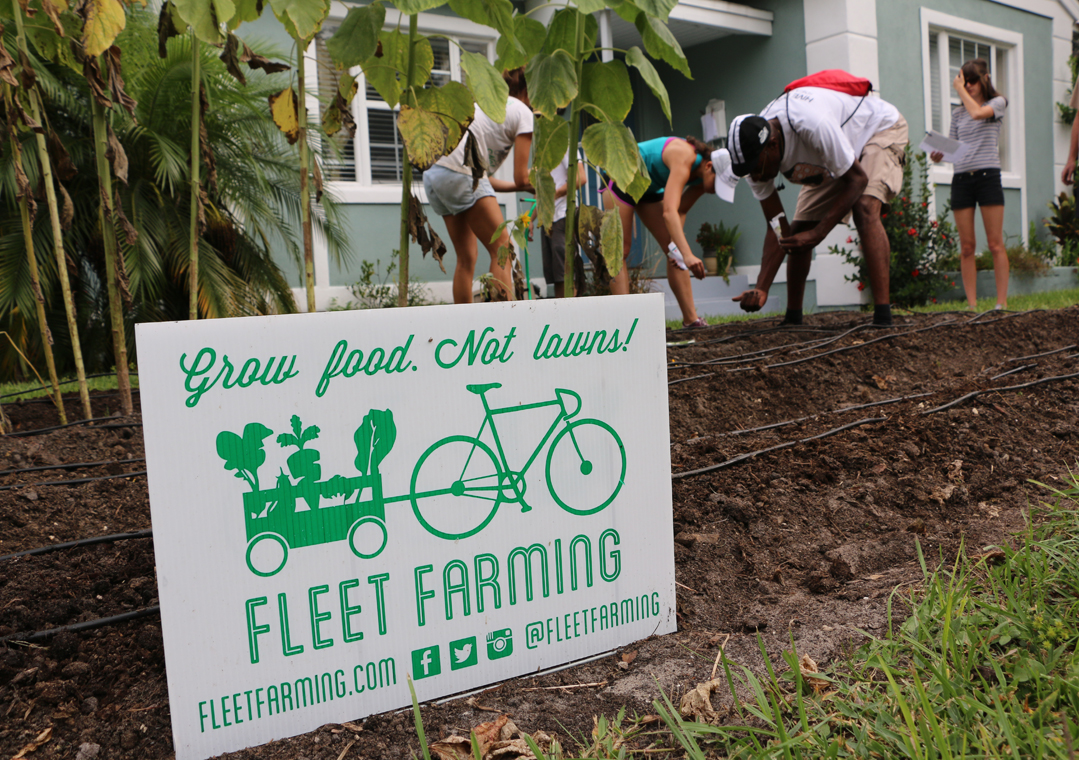
What you need to know about fleet farming—aka the front-yard “farmlettes” that are inspiring United Nations ambassadors
Many folks nationwide have let their lawns “go brown” to help conserve water. A valiant effort. But a group out of Orlando, Florida, may have come up with a better solution for the 40 million acres of lawn in this country: Convert them into farms.
“That’s essentially wasted, under-utilized space,” says Chris Castro, the co-founder and adviser of an operation called Fleet Farming. “Farms are beautiful, but also productive.”

Castro’s Fleet Farming project, which he co-founded with Heather Grove and Justin Vandenbroeck, has transformed many private yards into micro-farms (or to use their preferred term, “farmlettes”). The intent is to create a means of hyper-localized urban food production with a near-zero carbon footprint. Fleet farming currently operates in three neighborhoods (Orlando, Oakland, California; Jacksonville, Florida) with three more in the pipeline (West Orlando, Florida; Austin, Texas; Dallas).
The idea is that homeowners operate as sharecroppers (to use the word in only its most technical sense). The Fleet Farming staff build the farms, transforming water-guzzling lawns into edible gardens, and maintain them for participating homeowners, who get to keep roughly 10 percent of their farmlette’s produce. The homes in a single Fleet Farming branch are all located within a one-mile radius. This is because every two weeks, the Fleet Farming team, along with neighborhood volunteers , ride their bikes through the community in a “swarm,” harvesting the remaining 90 percent of produce and transferring it to farmers markets and restaurants within a three-mile radius. Then, they sell the fresh, local bounty. Volunteers get a discount on the produce, and a free education in urban farming.
“We’re taking the community members on an adventurous urban garden community bike ride every other Sunday,” explains Vandenbroeck, who also functions as an adviser to Fleet Farming. “It’s the heart and the soul of Fleet Farming.”

The whole thing started in the Audubon Park neighborhood of Orlando in December, 2013. Fleet Farming is actually one project among many from IDEAS For Us, a 501(c)(3) nonprofit that Castro co-founded in 2008, to provide funding for community-oriented environmental solutions. During a brainstorming “think tank” session with his local Audubon Park community, which Castro refers to as “The Hive,” local urban farmer John Rife proposed an idea for a bicycle-powered urban farming program. They fleshed out the idea for several months, eventually launching the first Fleet Farm swarm in February 2014, with just five homes participating. Today 20 Audubon…





